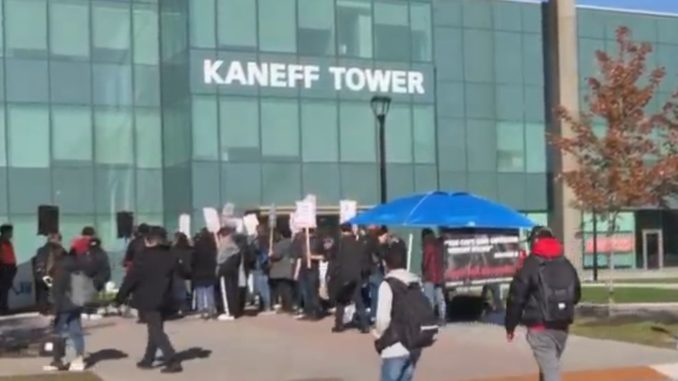
by David Sproull
On August 22 of 2017 controversial academic Jordan Peterson was slated to speak at Ryerson University.
That talk never happened as there was push-back from some of the Ryerson students and the show was shut down. Some hailed it as a victory against odious ideas, while others saw it as a blow against free speech.
Now that it is 2019 the pendulum has swung again, and now there is a new free speech legislation brought in that Queen’s Park says will allow all ideas to have equal time on Ontario campuses.
As of the first of this month every college in Ontario must have a freedom of speech policy in place with mechanisms to protect any speech that is not outright criminal.
According to a press release (from the office of Premiere Doug Ford, this new policy is inspired by the principles on free speech set out by the University of Chicago, first published in 2014 and widely adopted throughout the United States.
The statement references an event in 1932 in which William Z. Foster, the Communist Party’s candidate for US President caused a great deal of controversy and criticism for the University.
Then University of Chicago President Robert M. Hutchins responded in favour of open debate and inquiry saying “free inquiry is indispensable to the good life, that universities exist for the sake of such inquiry, [and] that without it they cease to be universities.”
It is this idea that provides the philosophical underpinnings of the Chicago statement.
However, groups such as Socialist student group ‘Fight Back’ raise concerns that Premiere Ford’s intentions are much less noble than might appear on the surface, calling the policy “Orwellian double speak” that will
- Remove funding and recognition from student unions who do not wish to be complicit.
- Result in student clubs that protest hateful groups being defunded and dissolved.
- Result in individual students being disciplined or even expelled.
Vice President of The Continuing Education Students’ Association of Ryerson (CESAR), Amanda Lin reflects these concerns in a written statement to S@Y News.
“This new policy is of major concern for students’ unions and activists lobbying for change in this current political climate. It restricts our ability to voice our concerns and take action in the face of injustice.”
And further stated;
“We are working together with the Canadian Federation of Students-Ontario (CFS-O) to lobby against this policy and protect student autonomy and our right to vocalize concerns. In light of Thursday’s cuts to post-secondary education funding by the PC government, we are seeing a strategic step to dismantle the power and autonomy of students to be able to make necessary and effective change on our campuses.”
These concerns were also reflected in a published statement by NDP Universities and Colleges critic Chris Glover (Spadina-Fort York) who also went on to say in a direct reply to S@Y news that
“Free speech and protection from hate speech are already enshrined in the Canadian Charter of Rights. But the big concern is Doug Ford creating this policy so he can be the arbiter of free speech. Each institution’s free speech policy will be reviewed by the Higher Education Quality Council, and that council is appointed by Ford. Therefore, his approval determines what can and can’t be said on Ontario’s campuses, and that is a major concern.”
As to how this policy affects Seneca students and staff specifically, not a lot of official channels were willing to say much, although Seneca College media relations specialist Lisa Pires did provide us with a copy of Seneca’s free speech policy based on the new legislation.
Seneca’s New Free Speech Policy
Some of the students on Seneca@York campus also, gave us their views on the issue of free speech

Be the first to comment